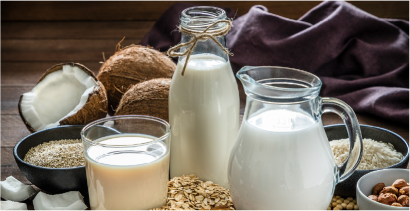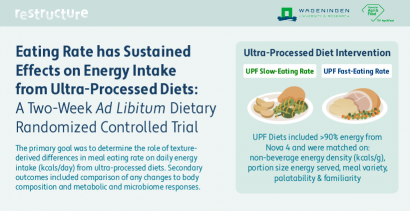Newsroom
96% dos nutricionistas portugueses concordam: alternativas vegetais aos laticínios devem ser fortificadas
Carlos Andrés Zapata, nutricionista: “Comer fruta entera no solo es seguro, es una estrategia protectora para tu salud metabólica”
Poids : au-delà de l’indice de masse corporelle, voici les 4 meilleures façons de faire évaluer vos risques pour la santé
Týmto výživovým klamstvám veríte celý život: Vedci odhalili pravdu o tukoch, sacharidoch či „nočnom vyjedaní“
La Europa que engorda: el 60% de la población es obesa. ¿Vamos camino de convertirnos en EEUU?
EUFIC Communication Lab on sweeteners part two : Targeted recommendations for healthcare practitioners
In June 2025, EUFIC carried out the second part of its online Communication Lab on sweeteners: an interactive, three‑hour workshop designed to translate the latest science into clear, practice‑focused messaging recommendations for healthcare professionals.
88% of nutrition professionals in Spain agree: plant-based dairy alternatives can be part of a healthy diet, but call for clearer guidance
A new survey conducted by the EUFIC reveals strong support among nutrition professionals in Spain for plant-based dairy alternatives (PBDAs), such as drinks and yoghurts made of legumes (e.g., soy), oats, nuts (e.g., almonds), rice, or coconut, with 88% agreeing that these plant-based alternatives can be part of a healthy diet. In addition, 78% support the inclusion of PBDAs in Spain’s national dietary guidelines. However, opinions varied on whether dietary guidelines should feature only fortified PBDAs or any version.
93 % dos nutricionistas em Portugal concordam: alternativas vegetais aos laticínios podem fazer parte de uma alimentação saudável, mas apelam a uma orientação mais clara
Um novo inquérito realizado pelo Conselho Europeu de Informação Alimentar (EUFIC) mostra um forte e crescente apoio dos profissionais de nutrição em Portugal às alternativas vegetais aos laticínios, tais como bebidas vegetais e alternativas vegetais ao iogurte, por exemplo, soja, aveia, frutos oleaginosos, arroz ou coco. Com 93% dos profissionais inquiridos a concordar que estas alternativas de base vegetal podem fazer parte de uma dieta saudável. Adicionalmente, 76% apoiam a inclusão de alternativas vegetais aos laticínios nas diretrizes alimentares e recomendações nutricionais nacionais. Dos que apoiam a sua inclusão, 62% são a favor da inclusão apenas das alternativas vegetais aos laticínios fortificados com micronutrientes.
93% of nutrition professionals in Portugal agree: plant-based dairy alternatives can be part of a healthy diet, but call for clearer guidance
A new survey conducted by EUFIC shows strong and growing support among nutrition professionals in Portugal for plant-based dairy alternatives (PBDAs), such as drinks and yoghurts made of legumes (e.g., soy), oats, nuts (e.g., almonds), rice, or coconut, with 93% agreeing that these plant-based alternatives can be part of a healthy diet. In addition, 76% support including PBDAs in the national dietary guidelines. Of those who supported their inclusion, 62% were in favour of including only PBDAs that are fortified with micronutrients.
Eating Rate Has Sustained Effects on Energy Intake From Ultra-Processed Diets, New Study Reveals
A randomized controlled trial (RCT) carried out by researchers from Wageningen University, the Netherlands, has provided new evidence that texture-derived differences in meal eating rate influence energy intake from diets composed of ultra-processed foods (UPFs).







